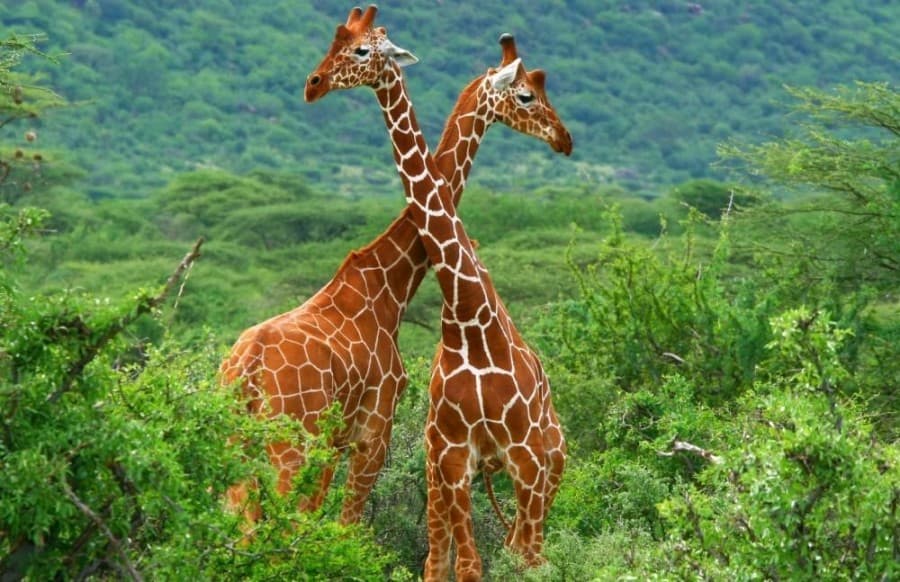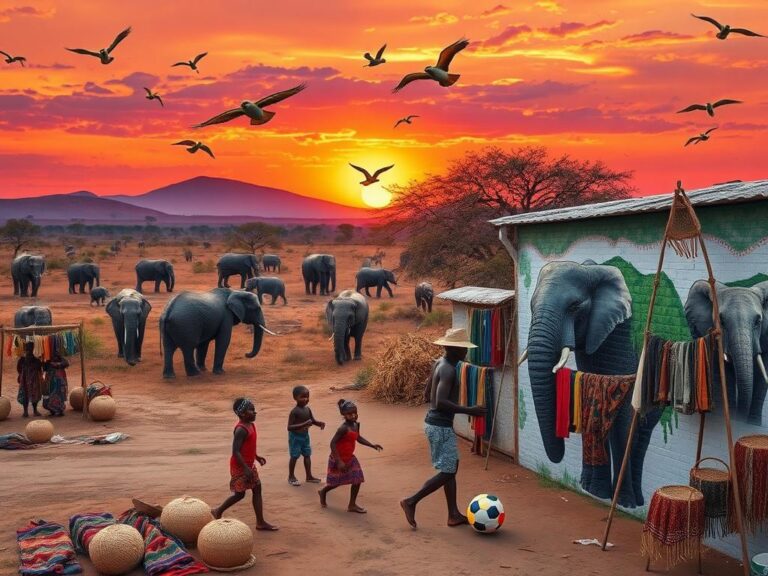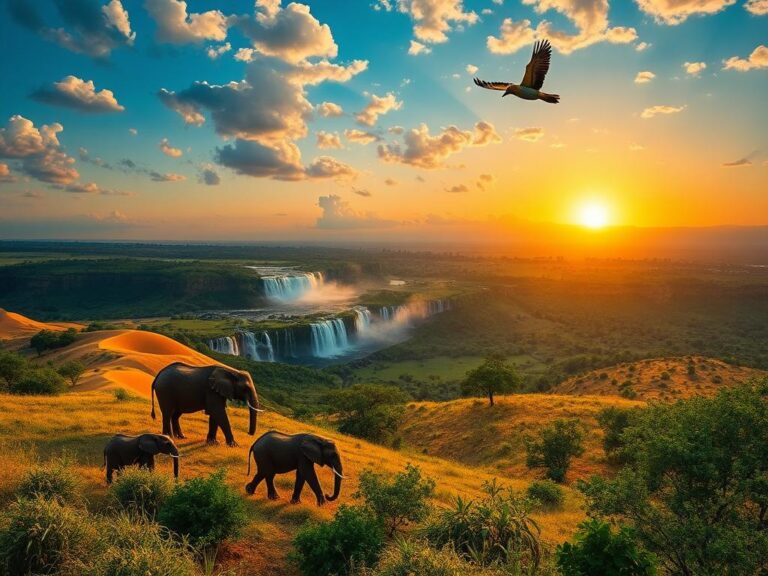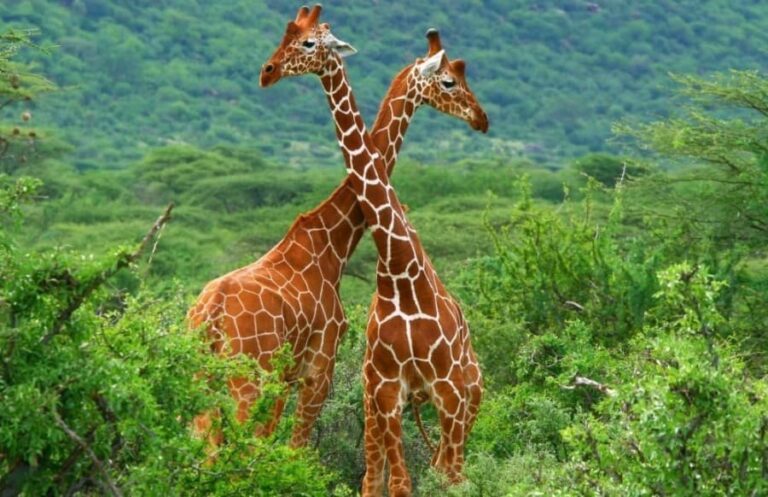
Best Time to Go to Africa: Discovering the Ultimate Travel Seasons
Best time to go to Africa is a question many travelers consider as they plan the adventure of a lifetime.
Africa, with its diverse landscapes, rich cultures, and spectacular wildlife, offers experiences that vary significantly throughout the year.
Understanding the seasonal variations in weather patterns, wildlife migration, and cultural events can help travelers make informed decisions that enhance their adventures.
In this article, we’ll explore the optimal months to visit various regions of Africa and highlight what makes each season uniquely appealing, ensuring you have all the necessary insights to craft your dream African itinerary.
Understanding Africa’s Climate Zones
To determine the best time to go to Africa, it’s essential to understand its diverse climate zones.
Africa is immensely varied, with regions experiencing desert climates, tropical rainforests, savannahs, and temperate areas.
For instance, while Southern Africa experiences winter from May to August, tropical regions like Central Africa maintain warm temperatures year-round.
Moreover, the best time to visit varies depending on the activities planned and the wildlife you wish to observe.
Here, we break down Africa’s primary climates and their implications for travelers:
- Tropical Rainforest: This climate is characterized by high humidity and year-round rainfall, making it best visited in the dry season between June and September.
- Desert: Winters in the desert (June to August) are mild and an excellent time for visits, while summers can be scorching.
- Savannah: Here, the wet and dry seasons dictate wildlife movement; it’s crucial to coordinate visits with migrations and calving seasons.
January – The Perfect Start to the Year
January marks the beginning of the dry season in many African countries, making it an ideal time to visit for safari enthusiasts.
Countries like Kenya and Tanzania are especially appealing during this month.
With cooler temperatures and reduced humidity, wildlife is easier to spot as animals congregate around water sources.
Stunning landscapes abound, showcasing Africa’s beauty, with lush greenery from the previous rains creating picturesque settings.
Travelers often explore major attractions such as the Serengeti and Ngorongoro Conservation Area, both of which shine during the dry season.
February – The Great Migration
February is renowned for the Great Migration, a remarkable event where thousands of wildebeests and zebras traverse the Serengeti in search of greener pastures.
This spectacle offers an unparalleled opportunity to witness one of nature’s greatest shows.
In addition, February is an excellent time for family safaris, as many animals are very active during this period.
The calving season for wildebeests occurs during this time, which brings an array of baby animals, increasing your chances of sighting fresh young wildlife as they begin their journey across the plains.
March – Whale Watching Season
As the waters around South Africa warm up, March heralds the arrival of migrating whales along the coast.
Hermanus, often referred to as one of the world’s best land-based whale-watching destinations, comes alive during this month.
Visitors can stand on the cliffs watching these magnificent marine mammals breach the surface, offering photographers stunning opportunities to capture these graceful giants amidst the rugged coastline.
It’s worthwhile to consider that this is not only a wildlife viewing experience but also a charming period for exploring coastal cities and indulging in local cuisine.
April – Wildlife Baby Boom
April is a remarkable time in Africa, characterized by a wildlife baby boom.
Many animals, especially in national parks like Ngorongoro Crater and Maasai Mara, give birth during this month, providing visitors with unique opportunities to witness adorable baby animals in their natural habitats.
As the lush vegetation returns post-rainy season, it enhances the photographic opportunities as well.
April also tends to be less crowded than other months, allowing for a more intimate safari experience.
Travelers can enjoy one-on-one moments with wildlife while experiencing the serene beauty of the African landscape painted in vibrant shades of green.
May – The Ultimate Green Season
May marks the arrival of rain and presents the ultimate green season in Africa.
As the rains sweep across the continent, it transforms vast areas into lush paradises, blurring landscapes in shades of vibrant green.
Photographers will revel in this opportunity to capture Victoria Falls, Okavango Delta, and other attractions at their picturesque best.
Travelers looking for a quieter experience can navigate popular routes while enjoying the advantages of sky-high hotel rates swinging low.
While wildlife viewing might be less predictable, the breath-taking scenery more than compensates for this, presenting incredible strokes of natural beauty to explore.
June – Great Wildlife Viewing
June marks the establishment of the dry season across various regions of Africa, an ideal period for responsible wildlife viewing.
Cooler temperatures make for comfortable safari excursions, particularly in Botswana and Zambia.
As water sources dwindle during this time, wildlife congregates around remaining waterholes, allowing for excellent wildlife spotting.
This heightened visibility becomes even more pronounced in places like Chobe National Park and the Okavango Delta.
Travelers will be delighted by the thrill of witnessing animals engaging in their natural behaviors as they stay close to streams and rivers.
July – The Famous Migration Continues
July is often associated with the peak of the Great Migration, similarly celebrated across Maasai Mara in Kenya.
During this month, tourists flock to witness the astonishing river crossings, where thousands of wildebeests and zebras bravely navigate treacherous waters, drawing numerous predators eager to feast.
This thrilling spectacle unfolds against the backdrop of the Mara’s rolling savannahs and stunning landscapes, making for an unforgettable safari.
Planning a visit in July means immersing oneself in Africa’s wilds at perhaps the most dynamic moment of the entire year, filled with unique chances to witness nature in its most exhilarating form.
August – Cultural Festivals
For those seeking cultural enrichment, August is a month rich in African festivals and celebrations.
Heritage Day in South Africa and various colorful festivals across Morocco create vibrant experiences showcasing the continent’s unique cultures.
This month is also an excellent time for travelers interested in art, music, and local cuisine while immersing themselves in the heart of African traditions.
Participating in these festivities also offers opportunities to connect with local communities and learn about their ways of life, making for a memorable experience.
September – Ideal for Safari and Beach Combo
As the dry season continues in September, temperatures stabilize, making it an optimal time for those looking to combine safari and beach adventures.
Travelers can explore Kruger National Park’s remarkable wildlife, engaging in thrilling safari experiences while later relaxing on the stunning beaches of Zanzibar.
In addition, September sees magnificent weather conditions, further enhancing both experiences without the oppressive heat of summer.
This time offers ideal circumstances for families or couples keen on balancing adventure with relaxation.
October – The End of the Dry Season
October is celebrated as one of the best months for wildlife viewing as animals gather around diminishing waterholes in search of hydration.
With comfortable temperatures, tourists can investigate wildlife reserves in Kenya with relative ease.
The scenery remains picturesque after the dry season, providing a stunning backdrop as countless animals gather.
This time is perfect for photographers eager to capture striking images of iconic African wildlife, showcasing them against the captivating landscapes.
Conclusion
In summary, the best time to go to Africa significantly varies based on your preferences, plans, and the experiences you wish to have.
From witnessing the Great Migration in February and enjoying the cultural festivities in August to spotting wildlife during the birthing season in April, Africa transforms for travelers throughout the year.
Understanding each season’s highlights helps ensure that visitors can tailor their journeys to suit their desires, creating unforgettable memories.
Whether you’re into breathtaking photography, thrilling wildlife encounters, or cultural immersion, Africa is sure to meet your every expectation no matter when you choose to explore.
FAQ
1. What is the best month for a safari in Africa?
While the best month for a safari can depend on various factors like location, June to October is often regarded as the prime time due to the dry season and optimal wildlife visibility.
Areas like Maasai Mara in Kenya and Kruger National Park in South Africa are particularly good choices during these months.
2. Is there a rainy season in Africa?
Yes, Africa experiences a rainy season, which varies from region to region.
In East Africa, the rainy season typically occurs between March and May, while West Africa sees rain often from June to September.
Southern Africa usually experiences rain from November to March during the summer months.
3. What should I pack for an African safari?
When packing for an African safari, it’s advisable to include items such as lightweight clothing, a hat, sunscreen, insect repellent, binoculars, and a good camera.
Don’t forget to bring along comfortable shoes for walking safaris and, if visiting during colder months, warmer layers for evenings.
4. Are there any cultural events I should consider during my visit?
Absolutely! Each region in Africa has its own distinct cultural heritage, and attending festivals such as Heritage Day in South Africa or local celebrations in Morocco can provide a unique glimpse into traditional life.
Research local happenings relevant to your travel dates for an authentic experience.
5. How do I find the right safari package?
The best way to find a suitable safari package is by researching reputable tour operators and reading reviews.
Ask for recommendations from fellow travelers or check trusted travel blogs.
Ensure the package fits your preferences and desired itinerary, creating a customized experience tailored to your interests and budget.
We encourage you to share your thoughts, experiences, or questions in the comments section below.
Your adventure awaits in the captivating landscape of Africa.


